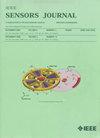TinyFL_HKD: Enhancing Edge AI Federated Learning With Hierarchical Knowledge Distillation Framework
IF 4.3
2区 综合性期刊
Q1 ENGINEERING, ELECTRICAL & ELECTRONIC
引用次数: 0
Abstract
With the rapid evolution of artificial intelligence (AI) and the Internet of Things (IoT), machine learning is increasingly being integrated into embedded systems, bringing computational capabilities closer to where data are generated. This article introduces a tiny federated learning framework, which concerns privacy, personalized training, and the constrained computational resources of edge platforms by introducing a novel hierarchical knowledge distillation (HKD), called TinyFL_HKD. The HKD leverages hierarchical learning and advanced encryption security (AES) schemes to ensure data privacy and security. It employs knowledge distillation to reduce model complexity for implementation in edge devices and enhance personalization. The performance of TinyFL_HKD is introduced by using two datasets: the tool wear dataset and the PHM 2010 Data Challenge dataset. Experimental results indicate that the HKD framework surpasses traditional federated averaging (FedAvg) and personalized federated learning (PFL) algorithms in both model accuracy and computational efficiency. This establishes HKD as a resilient solution for edge AI applications.求助全文
约1分钟内获得全文
求助全文
来源期刊

IEEE Sensors Journal
工程技术-工程:电子与电气
CiteScore
7.70
自引率
14.00%
发文量
2058
审稿时长
5.2 months
期刊介绍:
The fields of interest of the IEEE Sensors Journal are the theory, design , fabrication, manufacturing and applications of devices for sensing and transducing physical, chemical and biological phenomena, with emphasis on the electronics and physics aspect of sensors and integrated sensors-actuators. IEEE Sensors Journal deals with the following:
-Sensor Phenomenology, Modelling, and Evaluation
-Sensor Materials, Processing, and Fabrication
-Chemical and Gas Sensors
-Microfluidics and Biosensors
-Optical Sensors
-Physical Sensors: Temperature, Mechanical, Magnetic, and others
-Acoustic and Ultrasonic Sensors
-Sensor Packaging
-Sensor Networks
-Sensor Applications
-Sensor Systems: Signals, Processing, and Interfaces
-Actuators and Sensor Power Systems
-Sensor Signal Processing for high precision and stability (amplification, filtering, linearization, modulation/demodulation) and under harsh conditions (EMC, radiation, humidity, temperature); energy consumption/harvesting
-Sensor Data Processing (soft computing with sensor data, e.g., pattern recognition, machine learning, evolutionary computation; sensor data fusion, processing of wave e.g., electromagnetic and acoustic; and non-wave, e.g., chemical, gravity, particle, thermal, radiative and non-radiative sensor data, detection, estimation and classification based on sensor data)
-Sensors in Industrial Practice
 求助内容:
求助内容: 应助结果提醒方式:
应助结果提醒方式:


